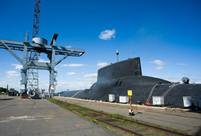

Overseas investors are still cautious toward A shares despite a rebound on Monday, as international fund managers warned the A-share market may continue to slide due to expensive valuations, and disorderly deleveraging may tighten liquidity.
The Shanghai Composite Index rose by 2.4 percent and the large-cap CSI 300 surged by nearly 2.9 percent on Monday, after the government announced a series of market stabilization measures during the weekend. The Shanghai Composite Index has tumbled nearly 30 percent in the past three weeks on concern leveraged traders are liquidating bullish bets as equity valuations exceeded levels seen during the country's stock market bubble in 2007.
Despite the rebound on Monday, foreign investors turned net sellers of 18.45 billion yuan ($2.97 billion) of A shares through the Shanghai-Hong Kong Stock Connect program, the highest sell trade value since the link started in November.
The northbound trading balance was 26.38 billion yuan, representing 202 percent of the 13 billion yuan daily quota, meaning the sell trade value was larger than the buy order value on Monday.
These two data indicated overseas investors are cutting their exposures to A shares by capitalizing on the A-share market rebound.
"We are urging investors to sell mainland brokerage shares when the A-share market rebounds somewhat in the coming days," Bank of America Merrill Lynch said in a research report. "The market appears very expensive to us. We assess that there is still a fairly high chance that the market may fall sharply at a certain point over next few months."
Liu Ligang, chief economist for greater China at the Australia and New Zealand Banking Group Ltd, said: "The market should be vigilant on the second round effects of the stock market slump. As margin trading has surged in the past few quarters, the deleveraging process, if it takes place in a disorderly manner, could tighten market liquidity. Commercial banks could even refuse to lend to the interbank market due to liquidity concerns over counterparties such as securities houses. Banks would become more cautious in lending to companies, especially to those with big exposure to stock market."
The central government announced a series of measures like halting initial public offerings in a bid to rein in the recent A-share market rout triggered by excessive margin lending.
HSBC Holdings Ltd's Hong Kong/mainland equity research head Steven Sun Yu said: "Policy support could prevent further sharp market falls; yet we think investors likely will sell into rebound in order to lower their leverage."
But Sun said that there is no need for panic because A-share listed companies' cash flow is improving and earnings revisions could turn positive in the second half of the year.
"In a challenging environment, A-share companies have become more prudent on expenditure, cutting back on investing for the future as well as trying to cut unnecessary expenses. The effort of rebuilding their balance sheets has moderately improved A-share companies' cash positions," Sun said.
 Evolution of Chinese beauties in a century
Evolution of Chinese beauties in a century Creative graduation caps of ‘vigorous elves’
Creative graduation caps of ‘vigorous elves’ Typhoon class strategic Submarine in photos
Typhoon class strategic Submarine in photos Hong Kong college students feel the charm of Hanfu
Hong Kong college students feel the charm of Hanfu Japan’s crimes committed against "comfort women"
Japan’s crimes committed against "comfort women" Odd news:“carrying a rod and asking to be spanked”
Odd news:“carrying a rod and asking to be spanked” Legendary life of a bee-keeping master in Hainan
Legendary life of a bee-keeping master in Hainan 4-year-old cute 'monk' spends summer holiday in temple
4-year-old cute 'monk' spends summer holiday in temple Hong Kong in lens
Hong Kong in lens Editorial: An uncertain road ahead for Greece and EU
Editorial: An uncertain road ahead for Greece and EU China’s class of 2015 gets creative with graduation photos
China’s class of 2015 gets creative with graduation photos Girl power on the pitch
Girl power on the pitch Giant panda Yuanzai turns two at Taipei Zoo
Giant panda Yuanzai turns two at Taipei ZooDay|Week